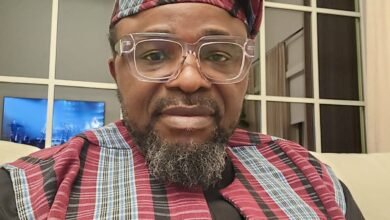The Politics of JAMB Failure: A Systemic Denial of the Nigerian Child’s Right to Education

The recent outcry over the 2025 Unified Tertiary Matriculation Examination (UTME) results has reignited public concern about Nigeria’s crumbling educational system. With over 1.95 million candidates sitting for UTME, only 21.5% scored above 200, while a staggering 78.5% scored below the university benchmark. This has provoked nationwide anger, complaints of result tampering, and demands for a remark.
But this failure is not merely academic, it is political. It is neither accidental nor isolated. It is symptomatic of a grand systemic design to deny the Nigerian child access to education.
Failure by Design
Let us be clear: the alarming rate of failure in UTME is not just about poor preparation or faulty grading. It is a reflection of a broader national disposition, a government that has failed to prioritize education. The Nigerian state, by its consistent underinvestment and neglect, has created an environment where failure is engineered, not just allowed.
This failure functions as a filter. It aligns with the known reality that even if 100% of candidates passed, the system simply cannot absorb them.
Capacity Gaps in Tertiary Education
As of 2025, Nigeria has a total of 283 universities, 69 federal, 66 state, and 148 private. In addition, there are 147 polytechnics and 205 colleges of education. Despite these numbers, the combined annual admission capacity across all tertiary institutions, including universities, polytechnics, and colleges of education, is estimated at 850,000 to 1,000,000 students. Universities account for approximately 600,000 to 700,000 of these slots, while polytechnics and colleges of education contribute a combined capacity of 250,000 to 300,000, based on historical data and underutilized quotas. With nearly 2 million candidates sitting for the UTME annually, this means that only about 38% to 50% of applicants can be accommodated within the current system.
The situation is further compounded by inequities in access. Private universities, despite comprising over half of the country’s institutions, admit less than 10% of students due to high tuition fees. As such, access is restricted not by merit but by economic class.
Moreover, polytechnics and colleges of education are historically underutilized, largely due to low societal perception, poor funding, and inadequate infrastructure. Yet these institutions continue to hold untapped capacity that could be strategically leveraged to reduce pressure on universities.
A Broader Crisis: Out-of-School Children and Abandoned Opportunities
Beyond tertiary education, the crisis is deeper. Nigeria has over 18 million out-of-school children, the highest number globally. And while billions sit in the Universal Basic Education (UBE) Fund, they remain inaccessible because states fail to pay the required counterpart funding. As of the latest data, over N135 billion in UBE matching grants remained unclaimed by 35 states.
This chronic failure to invest, expand, and properly manage the education sector proves that the denial of education is not coincidental, it is strategic. It is part of the silent machinery that ensures that children remain trapped in cycles of poverty, underdevelopment, and marginalization.
Reframing the Narrative
It is not enough to ask JAMB to remark scripts or review processes. We must ask bigger questions:
- Why does the Nigerian budget allocate only about 5% to education when UNESCO recommends 15–20%?
- Why are over 1.2 million qualified applicants turned away every year?
- Why are polytechnics and colleges of education underutilized, underfunded, and undervalued?
- Why is failure normalized, even expected?
This is why the conversation must shift. The problem is not the children. It is not even the exam. The problem is the system.
A Way Forward
- Expand tertiary capacity across universities, polytechnics, and colleges of education.
- Increase education funding to meet at least UNESCO’s minimum.
- Reposition non-university tertiary institutions as viable, desirable alternatives.
- Ensure full utilization of UBE funds through effective governance and accountability.
- Promote equitable access through public education reforms that prioritize inclusion over privilege.
- Improve perception and funding of polytechnics and colleges of education to enhance national capacity.
Conclusion
JAMB failure is not just an assessment statistic, it is a report card on the Nigerian state. It is a mirror reflecting our collective failure to protect and provide for our most precious resource: our children.
We must go beyond emotional outrage. It is time to name the design. Challenge the structure. And demand justice for the Nigerian child’s right to education.
Taiwo Akinlami is a Family Attorney, Family Strengthening and Child Protection Innovator, Parenting Ideologue, and Curator-in-Chief of ChildrenInfoBank.com. He advocates for systemic reforms in education, child safeguarding, and parenting across Africa and North America.





